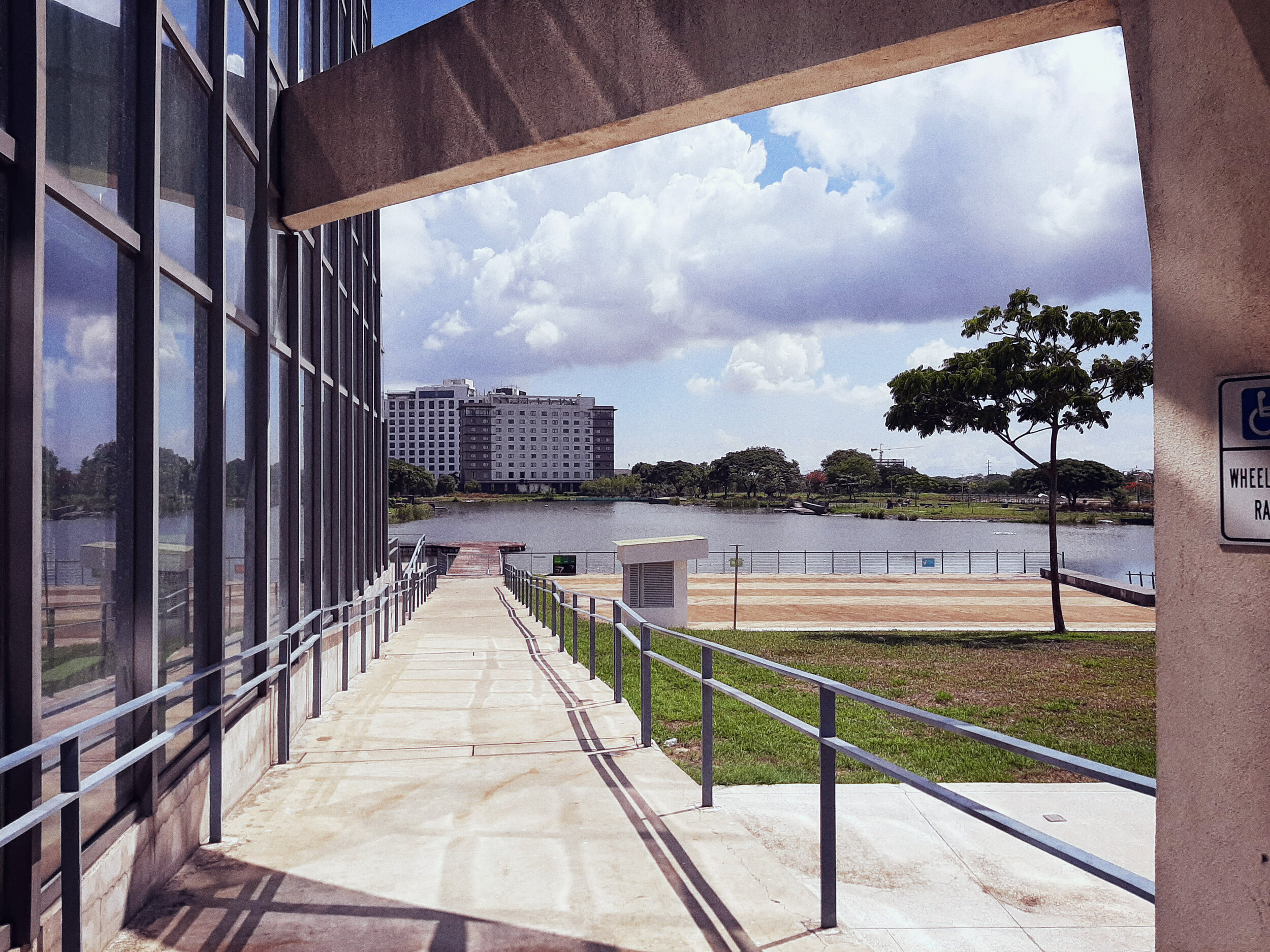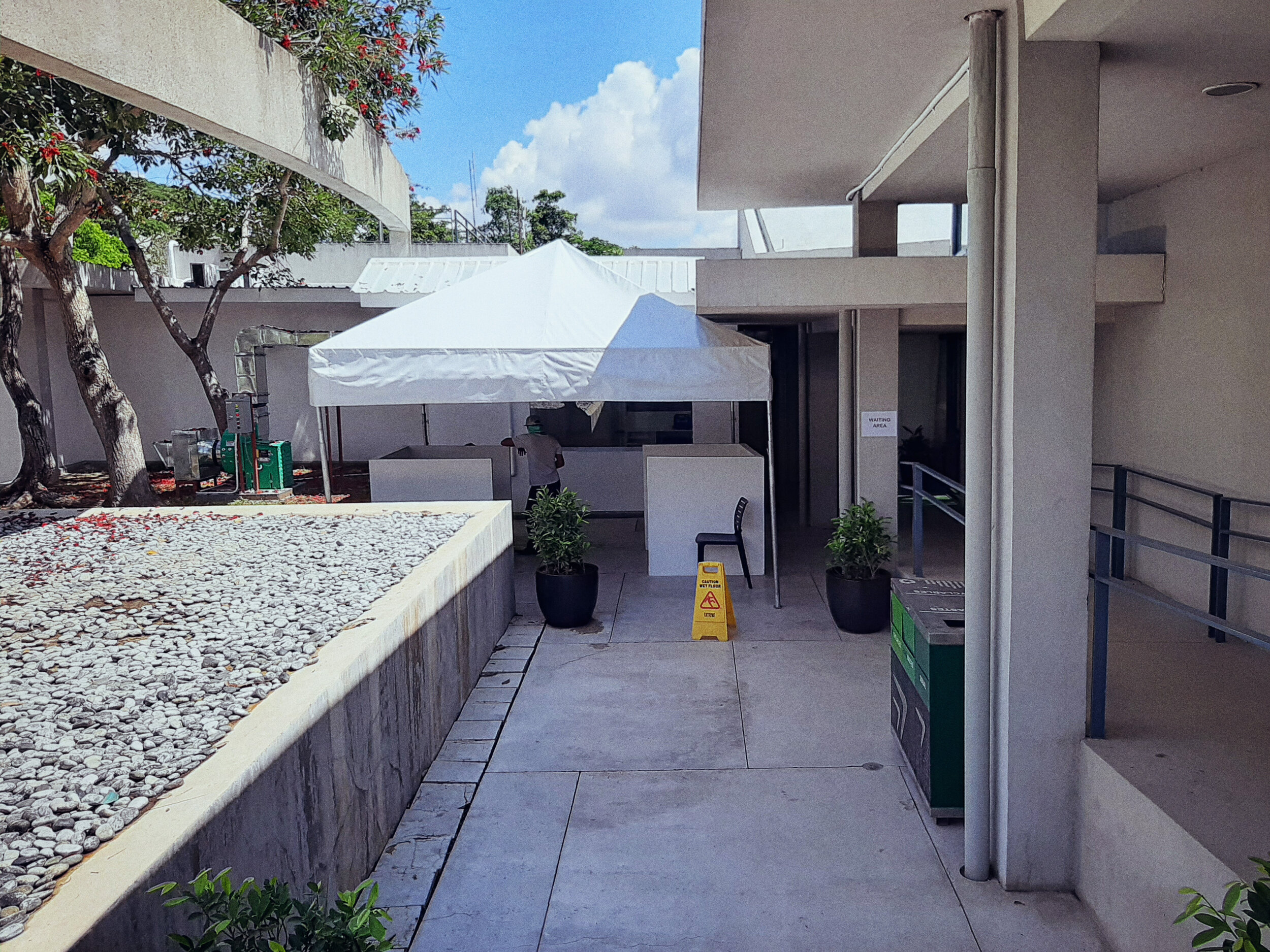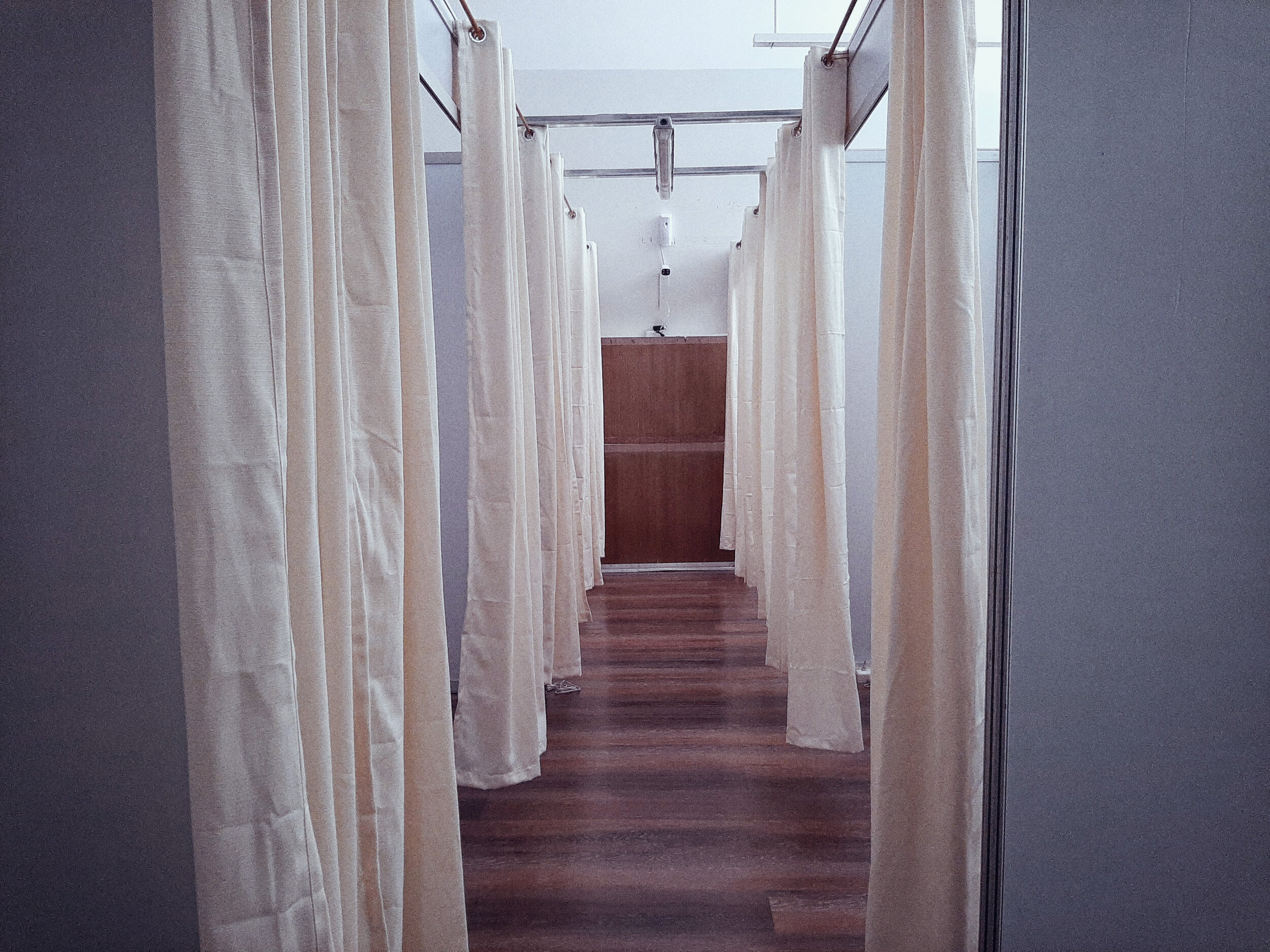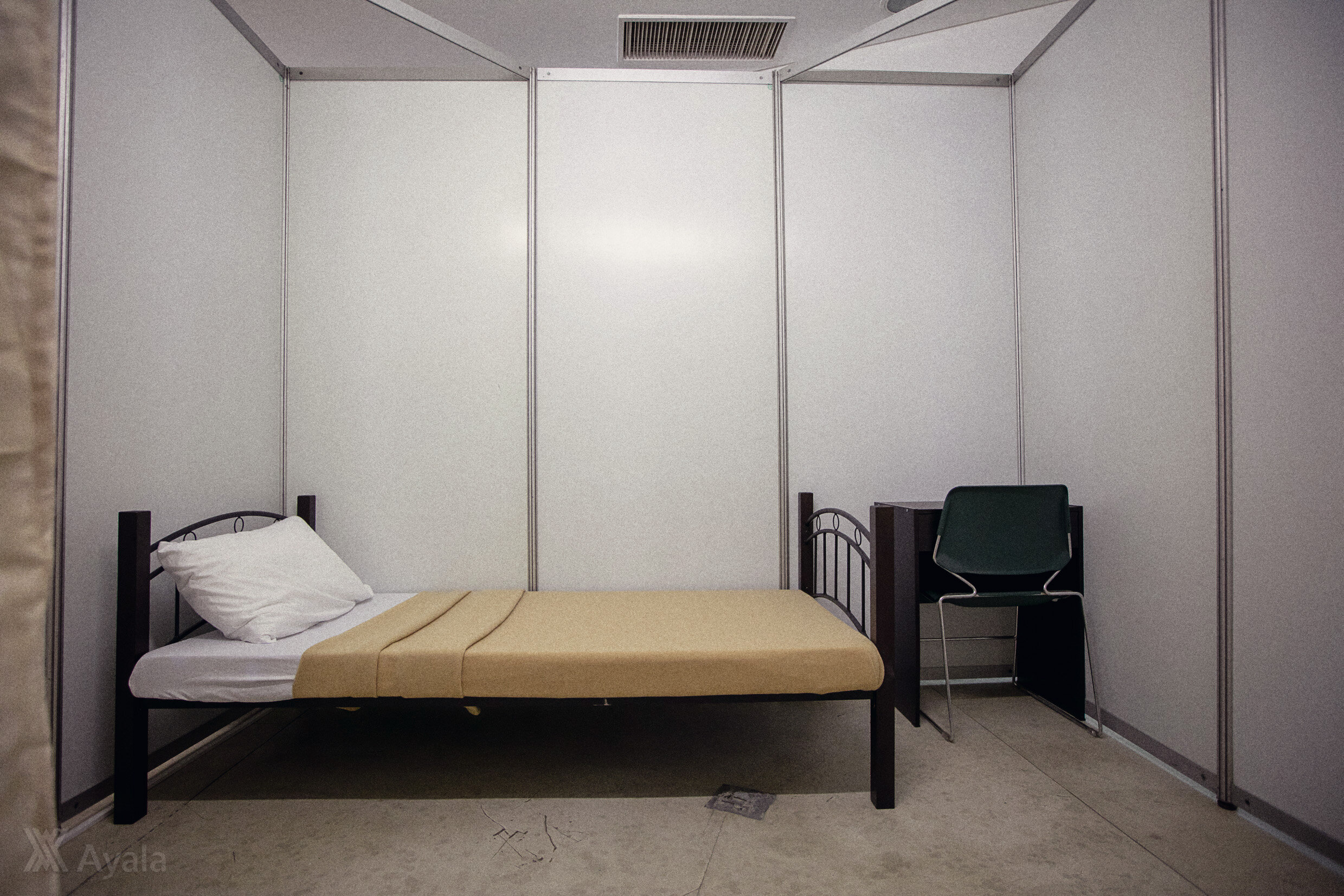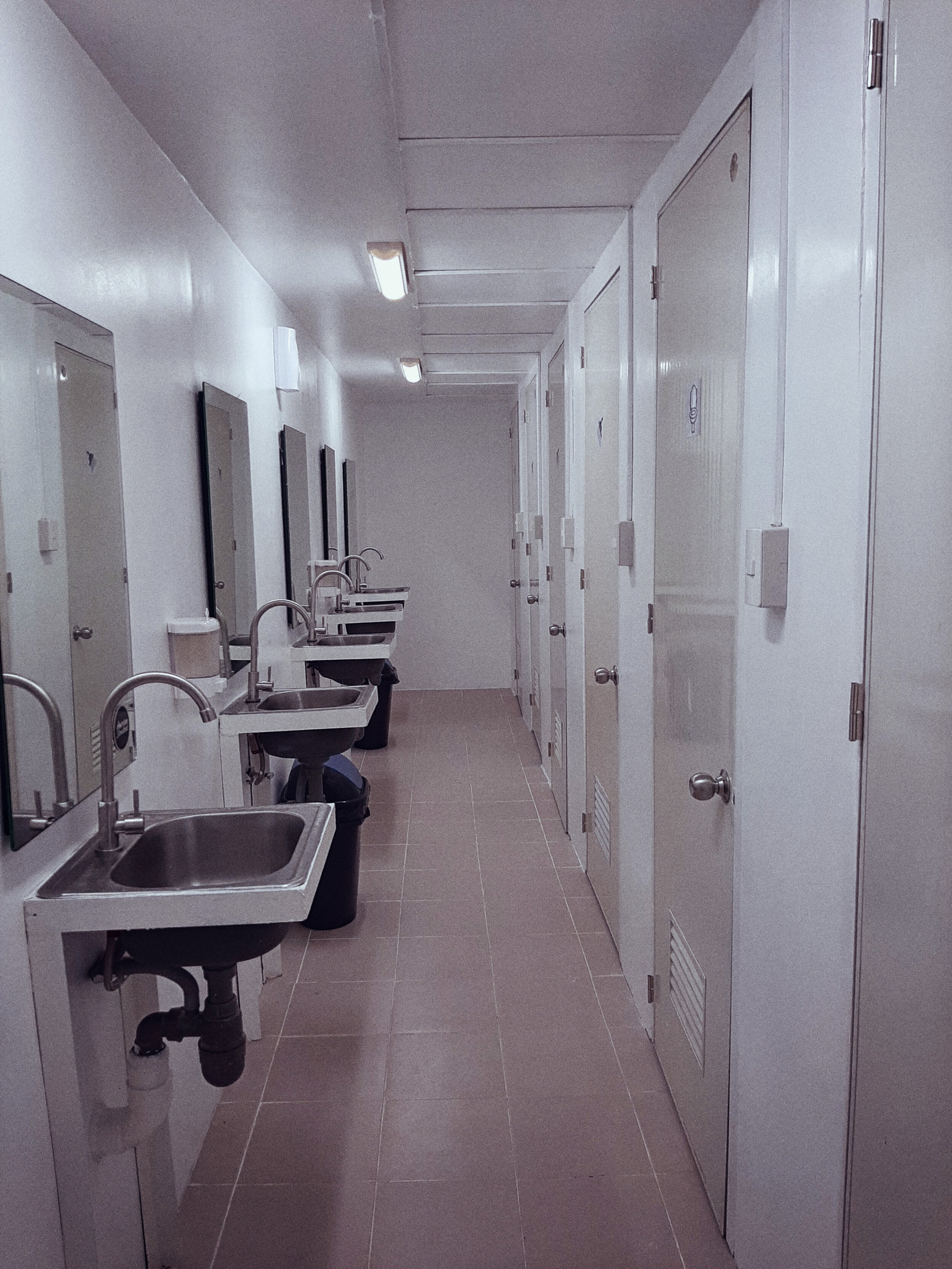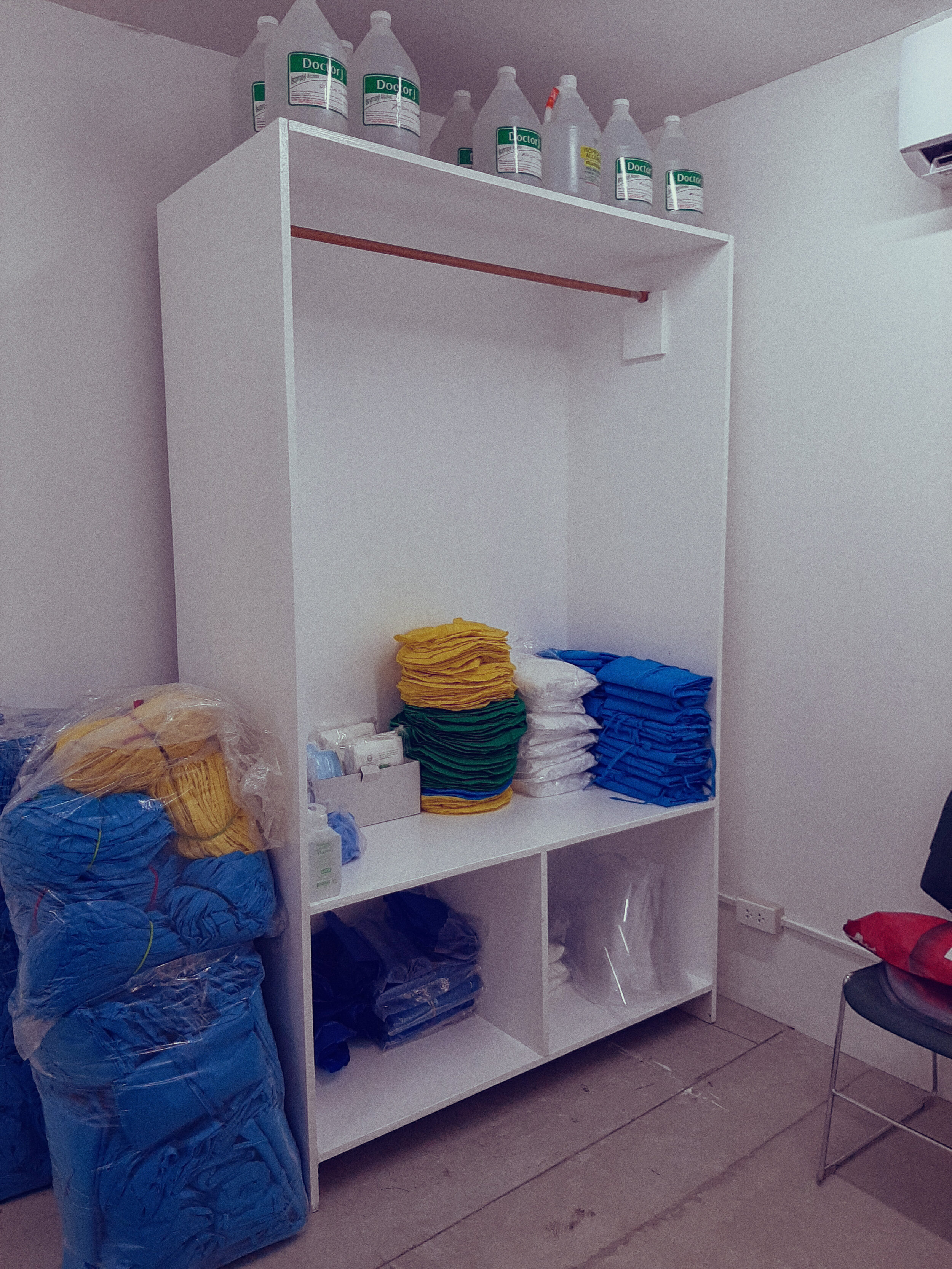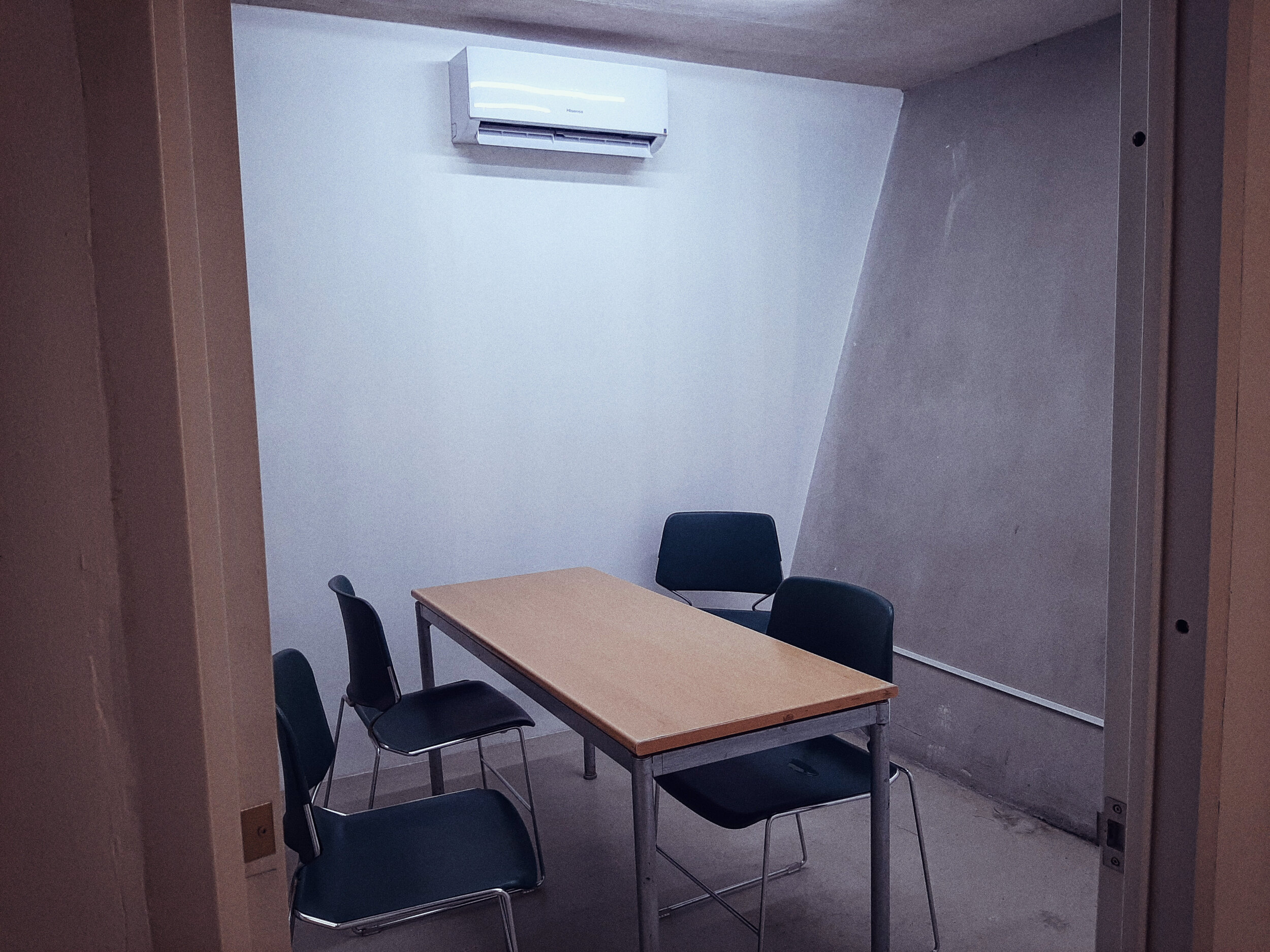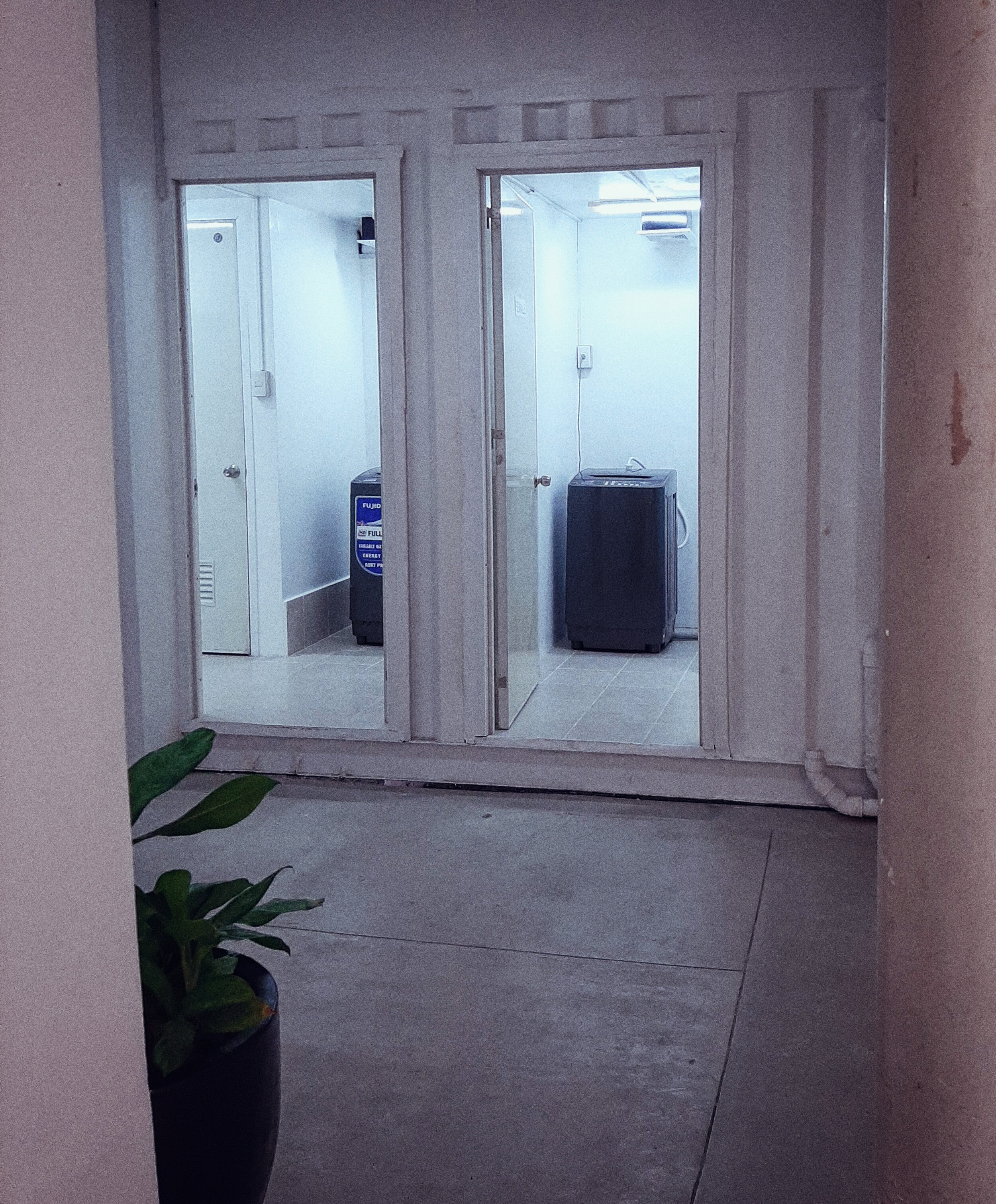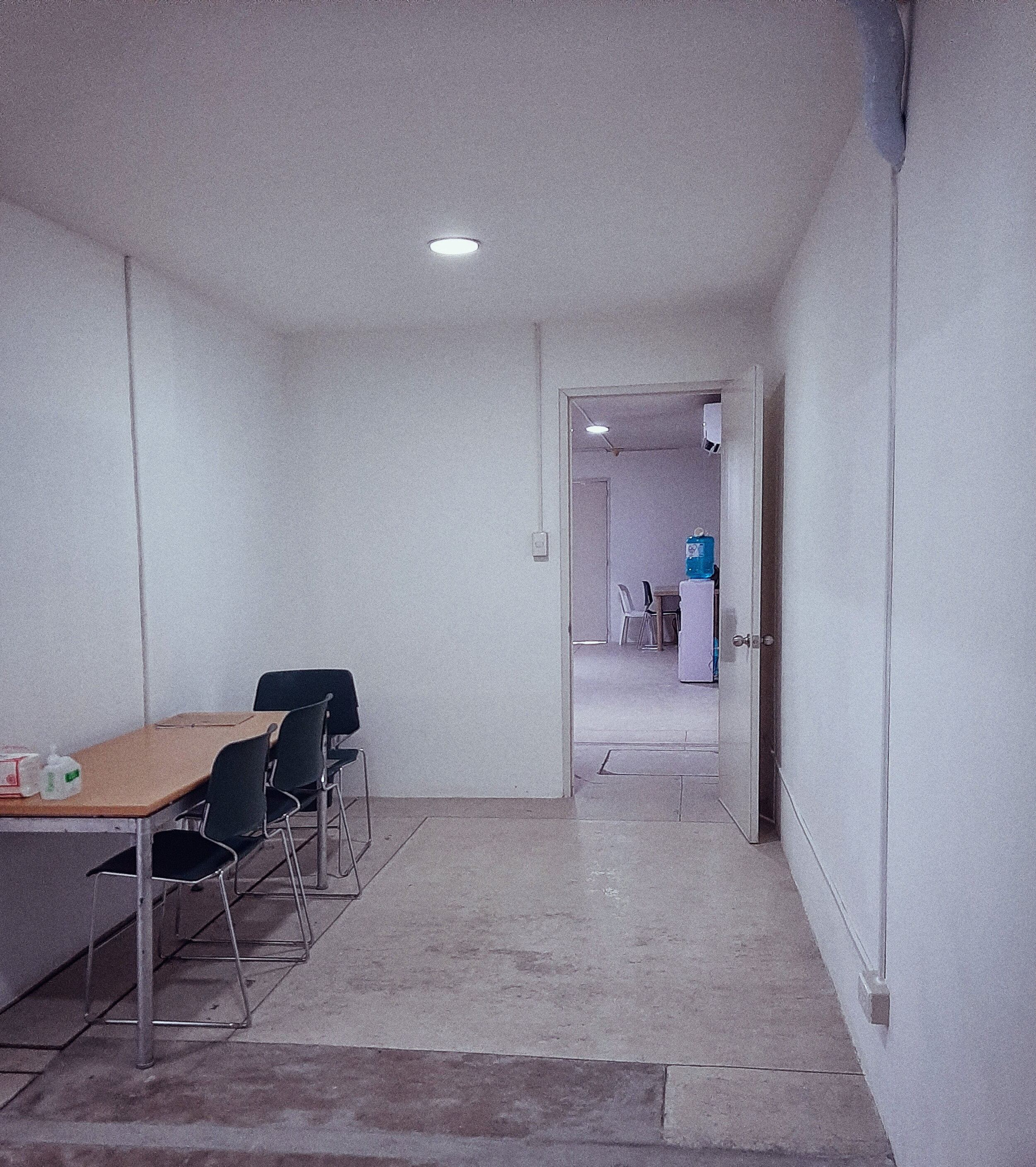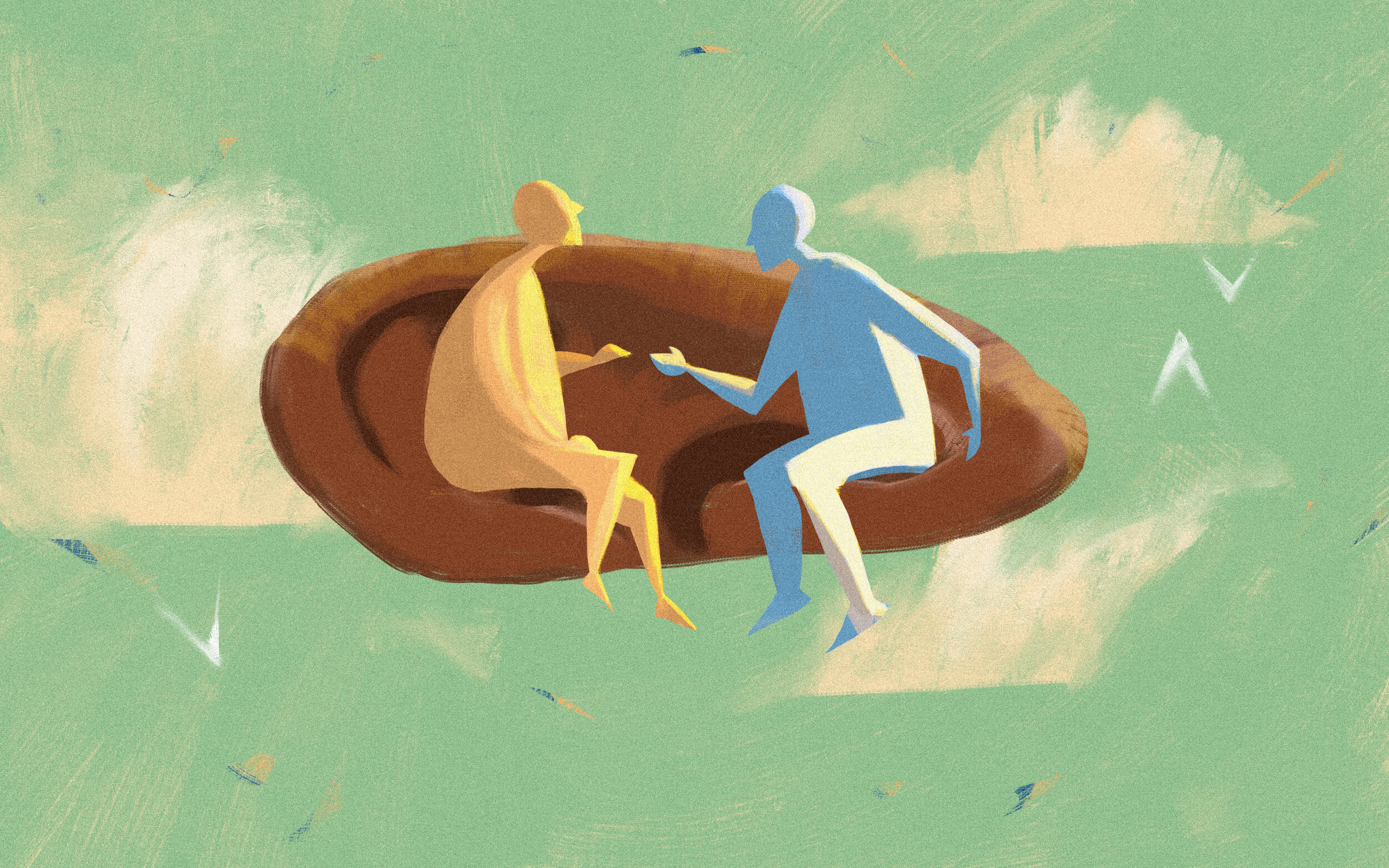A Healing Place
While under quarantine, Dr. Ramy Roxas of AC Health learned first-hand how to turn the Ayala Employees Care Center (AGECC) into a place of healing
Words by ALYA B. HONASAN
What goes into an excellent, effective lodging facility for suspected and asymptomatic COVID-19 patients—one that will help make them feel better, not sicker? Dr. Manuel Francisco “Ramy” Roxas knows.
That’s because, even before he came on board to help design and to manage the Ayala Group Employees Care Center (AGECC) in Nuvali Evoliving, Ramy was himself under self-quarantine.
Weeks before the lockdown, the surgeon had been exposed to a person who was later found to be COVID-19 positive. “I had to isolate myself, so I was reading up on everything I could about COVID-19 in my mother’s rest house in Tagaytay, ” Ramy says.
Thus, he learned a lot not only about the virus, but about what mattered to somebody who appears healthy, but has to stay confined. “The diet is important, the vitamins. At AGECC, vitamins are included in what we give our guests. Exercise and sunlight are also important; you can’t just be cooped up inside the room, so there is access from each of the wards to go outside, get some sunlight, and do some calisthenics. These are asymptomatic people who are just at risk, so we need to keep them healthy; in one sense, they are still healthy.”
AGECC itself feels like a family resthouse for the Ayala employees who—like Ramy—need to isolate themselves before returning to their families. Even the terminology used reinforces the idea of a place of healing, not illness. The center is called a lodging facility, patients are referred to as guests, and Ramy is AGECC’s general manager, not its medical director.
Be our guest. Positive and suspected positive patients are housed in different wings—and each room offers privacy, comfort and a spectacular view.
A blueprint for safety
Ramy actually joined the Ayala group for a different health issue, when he was looped in by his friend, oncologist Dr. Gary Lorenzo, to “strategize and brainstorm” for AC Health’s upcoming project: a 100-bed, P2-billion cancer hospital, which the company announced in May 2019. He had regular online meetings with Ayala while he was on self-quarantine.
And then, the pandemic hit, and AC Health had to respond to the crisis—“a very robust response,” notes Ramy, who is also an adviser to the company.
AC Health felt a good facility was needed to serve Ayala employees, so they worked with the Qualimed Health Network, an Ayala Land, Inc. partner. It was then that AC Health President and CEO Paolo Borromeo asked Roxas to also help set up the center. “The architects came up with the blueprints for converting the Evoliving center into a quarantine facility, with rooms, wards, bathrooms and all. I redesigned them so that infection control is of paramount importance. For example, the hospital staff who wear personal protective equipment (PPE) have to know where to put them on, where to take them off—that flow is important.”
The facility also segregates guests, separating those who are confirmed positive and those suspected to be positive. “Where are the safe areas? The green areas? The yellow areas where there’s some interaction, and the red areas purely for contaminated guests? You can’t mix them yet, but all guests must be protected and not interacting,” Ramy says. Even the staff, medical frontliners from FamilyDoc clinics, a subsidiary of AC Health, were very stringently trained on how to protect themselves.
(Read more about how EvoLiving was transformed into a lodging facility in Sanctuary.)
Grand opening. Ramy (in purple) welcome JAZA and FZA to the blessing of the new AGECC facilities on May 16.
Triage area. Ramy takes the group on a tour of the triage facility outside the Qualimed Sta Rosa facility (visible at right).
It was an advantage that the center is very close to the Qualimed Hospital, and the two facilities quickly delineated their responsibilities and system of interaction. “COVID-19 can start as a mild disease, but can turn quickly into a very deadly one,” says Ramy. “We didn’t want to put ourselves in a difficult situation where we didn’t have the medical capability to care for them.”
Thus, the triage, what Ramy calls “a decision-making process,” happens in Qualimed, where the patients are tested to assess risk factors. “If they feel that the patient has symptoms or is high risk—for instance, is hypertensive or diabetic—he or she is admitted in Qualimed. But if they feel a patient is low-risk and asymptomatic, they bring the patient to us.”
A beautiful world. Amid the chaos and disruption of a pandemic, the lake view reminds troubled patients that the sun always rises and better days will come.
Built with science, designed for the soul
It doesn’t hurt that AGECC, the sleek, well-lit building itself, is a balm to the spirit, located beside a lake—a view that can be enjoyed from the rooms. Centralized air-conditioning, 29 comfortable beds, and dedicated bathrooms make the wait easier for both confirmed positive and suspected positive guests, who occupy separate wings at the facility. “It’s really a place where people who are not really sick, but who tested positive for the virus or are waiting for their tests, can recuperate and feel that they’re well,” Ramy notes.
Not just “fresh air”. Each isolation room uses negative air pressure to push viruses out of extensive exhaust systems.
Don’t let the luxury fool you, though. AGECC follows standards of the United States Centers for Disease Control and Prevention (CDC) “down to the letter,” which covers everything from PPE donning and doffing and waste disposal, to using negative air pressure in the rooms to push viruses out through extensive exhaust systems.
Ramy was certainly up to the challenge of helping build this unique place. A graduate of the De La Salle University College of Medicine, class of 1988, he had his residency in General Surgery at De La Salle University Health Sciences Campus. In 2018, he earned a very useful Masters of Science degree in Health Industries Management from the ESSEC Business School Singapore, and in 2019, was a Harvard Medical School scholar in Surgical Leadership.
Sanctuary. The AGECC is at the Evoliving Center, part of Nuvali, Ayala Land’s first and largest eco-city. The area is surrounded by 51,986 trees and a man-made lake, and is sustainably designed.
““When you’re exposed, you’re afraid, you’re worried... There’s a lot of time to reflect when you’re isolated.””
Ramy admits that this pandemic project was something to get excited about. “You want to do something, to contribute something right. To be able to participate in a project like this during a national crisis is something I was really appreciative of.”
Which is not to say that Ramy didn’t fear for his own health. “When you're exposed, you're afraid, you're worried it could worsen. There’s a lot of time to reflect when you’re isolated; you think about your own mortality. I had to read up and make myself well.
“So the things I was doing for my own quarantine, I wanted to put in place for the Ayala employees. And for the company to come up with this center, I believe, is truly a mark of its commitment to its own people.” #
POSTED AUGUST 20, 2020


